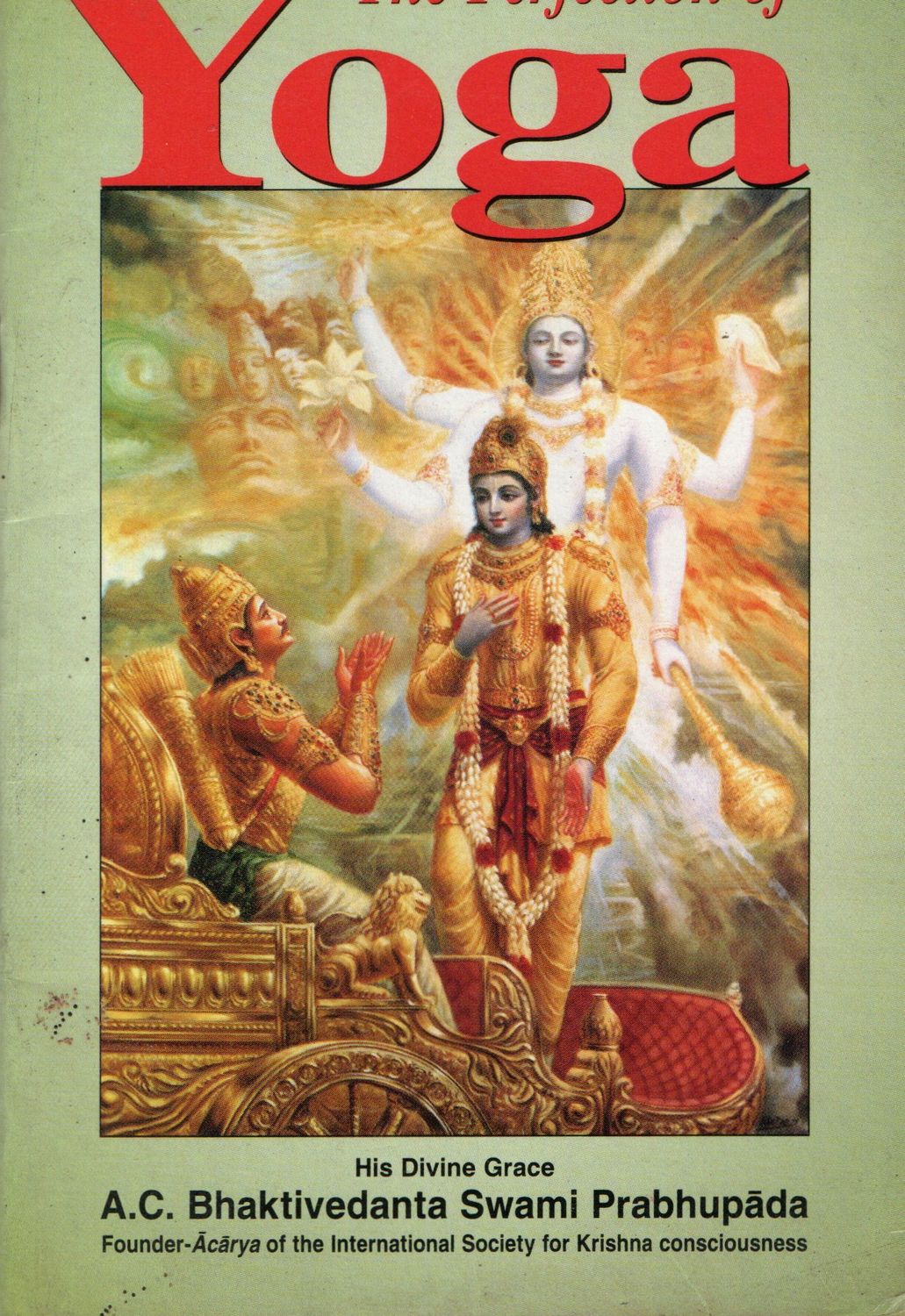The Perfection Of Yoga (English) Old Book
"The Perfection of Yoga" is a book by A.C. Bhaktivedanta Swami Prabhupada, a leading spiritual figure and the founder of the International Society for Krishna Consciousness (ISKCON). Published in 1972, this book serves as a concise and powerful exposition on the true purpose and ultimate goal of the yoga system, according to the teachings of the Bhagavad-gita.
Prabhupada's work challenges the modern, popular understanding of yoga as merely a system of physical exercises (asanas) and breathing techniques (pranayama). He argues that while these practices may have some health benefits, they are not the ultimate goal of yoga. The book aims to re-establish the original, spiritual meaning of the term "yoga."
Here are the central themes and arguments presented in "The Perfection of Yoga":
1. The True Meaning of Yoga
Prabhupada defines yoga in its original sense: "to connect" or "to link" one's consciousness with the Supreme. The purpose of all yoga systems is to unite the individual soul with the Supreme Soul (God). He explains that the physical postures and breathing exercises described in Patanjali's Yoga Sutras are meant to help one control the mind and senses, creating a stable platform for meditation on the Supreme. They are not ends in themselves but means to a higher end.
2. The Superiority of Bhakti-Yoga
The book systematically explains the various yoga systems mentioned in the Bhagavad-gita, such as hatha-yoga (physical postures), dhyana-yoga (meditation), jnana-yoga (knowledge), and karma-yoga (action). Prabhupada then presents a compelling argument, based on Krishna's own words in the Bhagavad-gita, that bhakti-yoga (the yoga of devotion) is the culmination and perfection of all other yoga systems.
In the Bhagavad-gita (Chapter 6, Verse 47), Krishna states: "Of all yogis, the one who always abides in Me with great faith, worshiping Me in transcendental loving service, is the most intimately united with Me in yoga and is the highest of all."
This verse is the cornerstone of the book's argument, emphasizing that the greatest yogi is the one who is fully devoted to God.
3. The Practical Application in the Modern Age
Prabhupada argues that the rigorous practices of dhyana-yoga (deep meditation in secluded places) are not practical for the average person in the current age (Kali-yuga). He highlights that the mind is restless and difficult to control, and modern life is filled with distractions. Therefore, he advocates for the simple and accessible method of bhakti-yoga, specifically the chanting of the Hare Krishna mantra (Hare Krishna, Hare Krishna, Krishna Krishna, Hare Hare / Hare Rama, Hare Rama, Rama Rama, Rama Hare), which is considered the most effective form of meditation and self-realization for this age.
4. The Goal: Love for God
The book concludes by stating that the perfection of yoga is not a state of emptiness or impersonal spiritual realization. The true goal is to reawaken one's dormant, eternal love for God. This love is expressed through devotional service (bhakti), and it is this loving relationship that provides the soul with ultimate and eternal happiness.
In summary, "The Perfection of Yoga" serves as both a corrective to the popular misconception of yoga and an inspiring guide to its original spiritual purpose. It provides a clear, philosophical road map, based on the Bhagavad-gita, that leads the sincere seeker from the physical aspects of yoga to its ultimate spiritual destination: a life of loving service to the Supreme Personality of Godhead.

